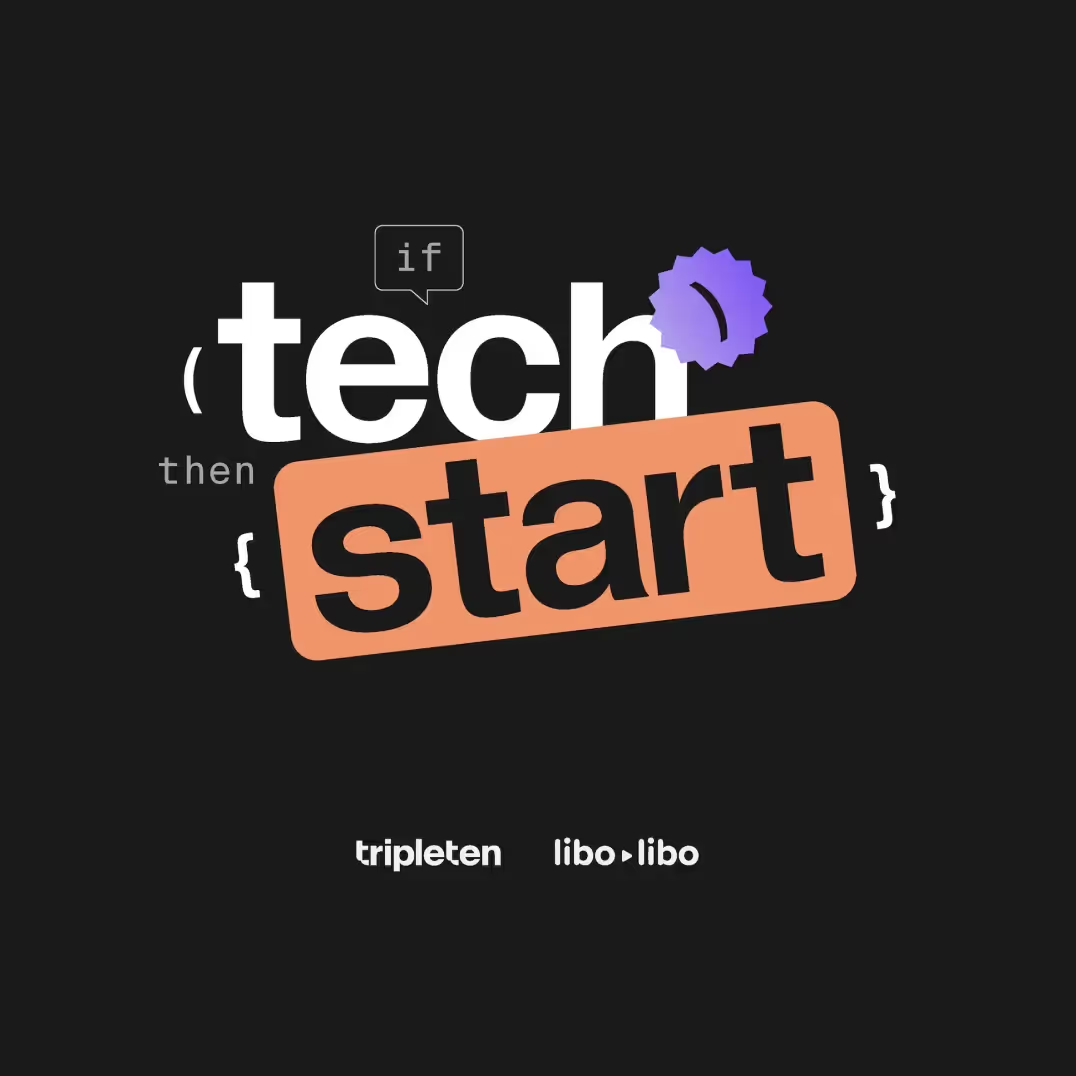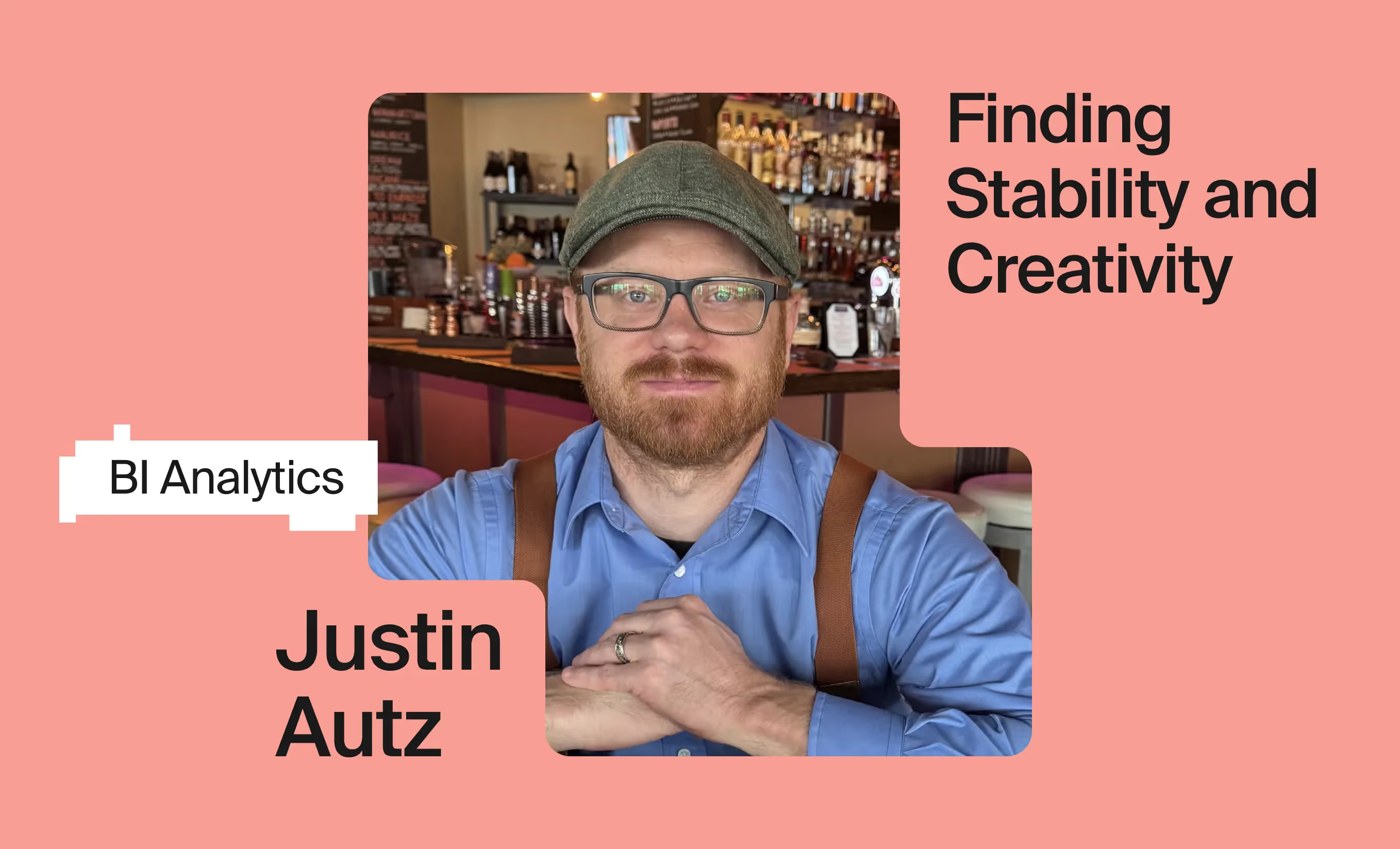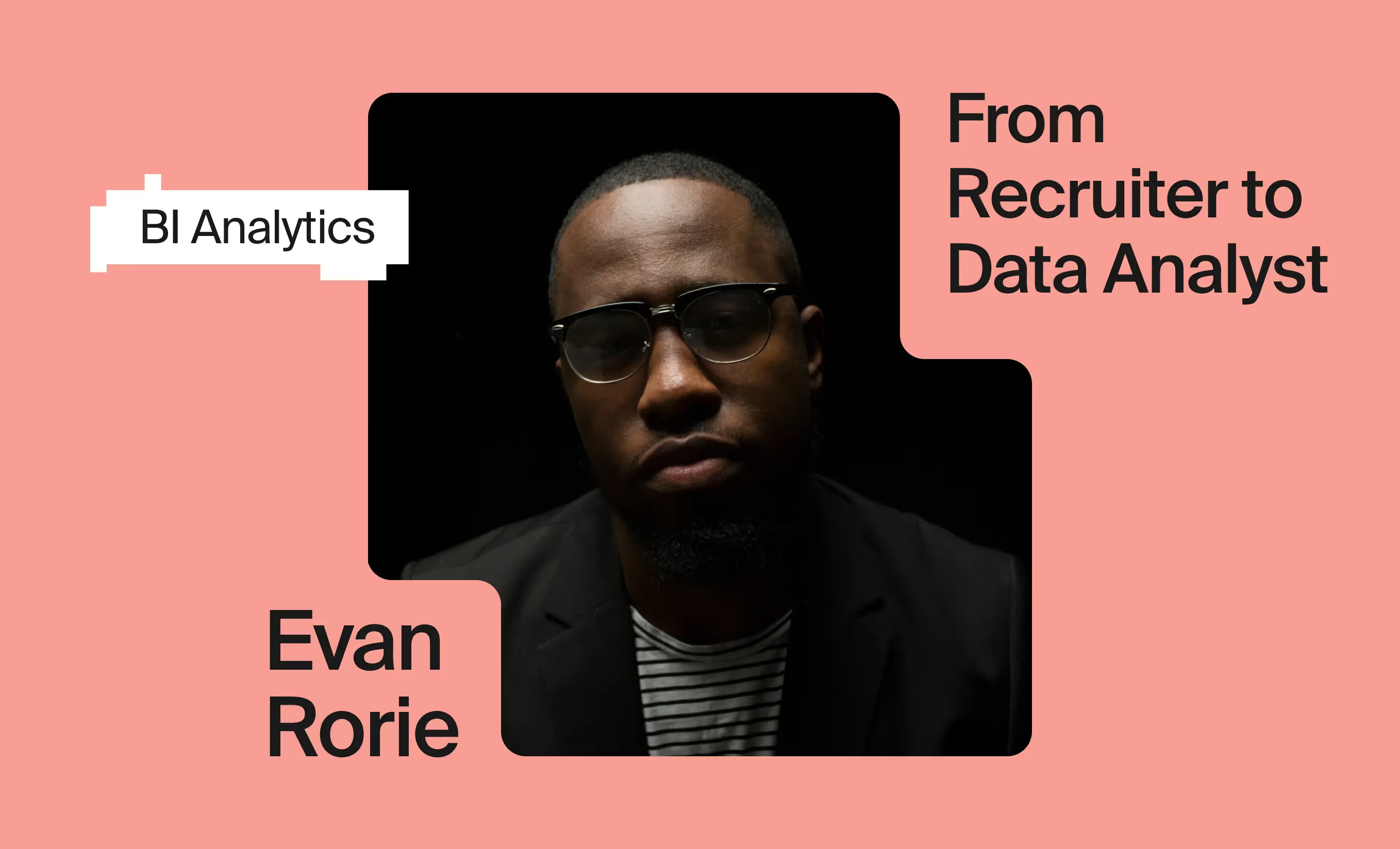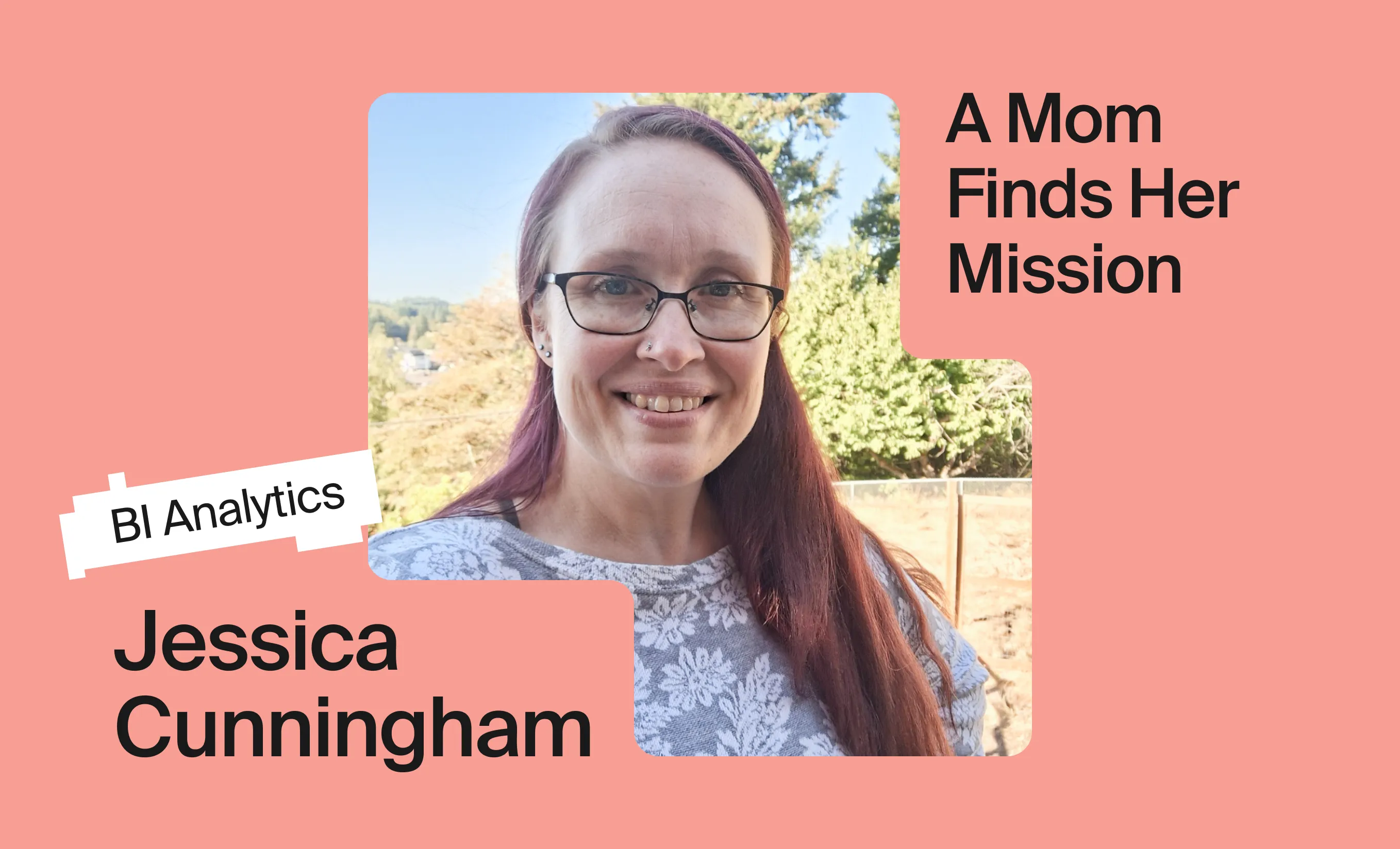You don’t meet people like Roy Tzach everyday. Having a solid background in data and engineering, he could be solving standard (even mundane), tech problems at one of the thousands of IT companies — just like many of his peers. Roy, however, made it his mission to improve and create additional value for whatever he was working on.
Although Roy shared the mission of the defense company he worked at, his skills were not being fully realized. As a BI & DWH developer, he could compare past and present data to decipher what was happening in his company or to its customers. But proving his insightful advice on how to improve their business processes was beyond his expertise, and this was something he really wanted to do.
Spoiler: He did. Wonder how it happened? Here’s Roy’s story.
Going the extra mile

Roy started his professional journey by bringing his engineering and data analytics expertise to Israeli defense companies. He liked his job and saw value in what he was doing, but he felt like he could do a lot more had he possessed more skills.
“We know what happens — we know where we are now - sometimes, we could even estimate where we are going, but it was based on our intuition and experience, not on science. As engineers, we search to confirm our assumptions on math and numbers. As a part of a successful business company that seeks to lead in a competitive market, we know what we estimate right now. But we want to have the ability to look to the future to see what we should expect. What's the key element that will affect business needs and how to measure it? [...] We don’t really tell them [businesses] what they need to do specifically to improve. We can estimate it; we can use some business logic; but we don’t prove it with statistical tools. This is the missing piece.”
As time went by, Roy’s frustration mounted. Finally, he decided to act. To better help his clients, he needed the skills that would let him make data-based predictions. This meant learning data science.
He began searching for online courses, but the ones he came across were a bit too focused on theory. “I learned Python by Udemy and some Coursera. It was nice, but until you work with what you learn, it never really goes deep.” Roy says. Enrolling in an offline course wasn’t an option either: with a full-time job and three little kids to care for, he couldn’t afford to spend six to eight months in a classroom. Roy needed something both flexible and practice-oriented — so when his friend dropped the name “TripleTen,” he knew he hit the jackpot.
Learn, work, repeat
Upskilling while working full-time is usually either exhausting or exciting. In Roy’s case, it was a bit of both.
With job and family commitments, the only time Roy could dedicate to his TripleTen course was late at night. Roy’s dedication, though, was inspired by his day job — he wanted to change things on a bigger scale, so he wasn’t afraid of hard work. Besides, TripleTen's Data Science course gave him a new perspective, amplifying his determination and encouraging him to stay on track.
“I started considering things from a different perspective, it [Data Science course] gave me a new layer. For instance: I analyze data for the sales department, prepare data, put up a dashboard for it, and see sales performance and KPIs. But now I also think: how can I add the predictive elements according to the course that I’ve just studied?"
The structure of the Data Science course proved helpful as well. Roy was training on real-life projects that allowed him to understand and retain theory. Whenever he needed help or a fresh take, he had easy access to course tutors and peers.
What I liked the most is that you always had someone you could consult with. It is the main advantage of this group — they don't just give you theoretical material, they also assign you a tutor and encourage other people who study with you to collaborate.
Another part of the course — soft skills training — came as a pleasant surprise. “Knowing how to communicate is just as important as knowing the math, but TripleTen's Data Science was the first course that covered this,” Roy says. After all, behind the numbers there are real people, so you gotta understand who they are and what they need. “It’s the most important thing for a BI developer or data scientist — to know what your customer wants, understand it from questions you ask him/her. It’s very easy to go into what you think will be the best option, but without cooperation from the users you could end up with a product no one will ever use.”
Keeping up with everything was tough, he mentions, but it was the only way to learn. The intensity didn’t leave him any other option but to finish each sprint on time. “If you’re ready to give up free time for six to seven months, the course can benefit you.
A couple of months into the course, Roy changed jobs (he was offered a new role!). After being contacted by a recruiter via LinkedIn, Roy entered his current role at a cybersecurity company. “Since the company combines a great product with great technology I was happy to join,” he shares.
The road ahead
Roy has big plans — short and long-term.
He already feels the value that the Data Science course gave him. Now, every time he develops a new project, he puts extra thought into a data architecture that will support the potential use of statistical models and prediction tools. Also, he’s learned how to continue upgrading his skills and knowledge on his own (TripleTen gave him a plan!) When he comes across an interesting case at work, he knows what to search for and what things he can adopt for future use. “I know where and what to look for and what can help me.”
His current employer supports his skill upgrade and welcomes Roy’s new perspective. “There are many case studies we can implement for various departments of an organization. Any organization, not just the one I work for — from HR to sales, R&D to Inventory, Production systems to Finance, and many more. Every place you go in an organization, you can find a scenario to improve.”
So what’s next? Roy knows exactly where he wants to take his career.
My goal is to be a one-stop shop. I want to be an expert who delivers our customers end-to-end solutions for their data needs. Start from project characterization, data flow construction, data models designing , dashboarding and reporting , and of course, statistical base predictions and recommendations.
Interested in the fascinating world of data science? Start learning with TripleTen today!











